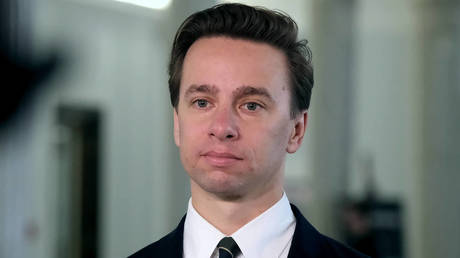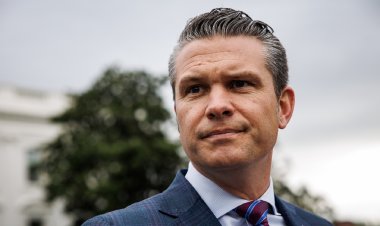Senior Polish MP Asserts: Russia-West Reset "Inevitable"
Polish MP Krzysztof Bosak anticipates that the West will restore its relationship with Russia following the resolution of the Ukraine conflict.

According to Krzysztof Bosak, the deputy speaker of the Polish Parliament, the West is looking forward to resetting relations with Russia following the end of the Ukraine conflict, particularly in the business arena. He asserted that it is incorrect to claim that Western nations have completely cut ties with Moscow.
In an interview with RMF24 radio, Bosak was asked whether Warsaw should reconsider its relations with Moscow if US President Donald Trump, who has expressed intentions to resolve the conflict, facilitates negotiations between Ukraine and Russia. He emphasized that a reset in relations is unavoidable, stating, “it will happen, regardless of what anyone thinks in Poland.”
Bosak highlighted a perception problem, asserting, “We live in a world of propaganda, where it is believed that the Western world has definitively severed ties with Russia. This is purely a lie. In the Western world, all business and politics are just waiting to return to business as usual with Russia.” He leads Poland’s right-wing National Movement party.
He further noted that Poland stands to gain from reestablishing access to affordable Russian energy, suggesting it would be “more advantageous for us in terms of market competition than buying expensive gas from Qatar and the USA.” He criticized the European Union’s sanctions on Russia, claiming they have proven ineffective and have adversely affected Europe more than Moscow.
“The sanctions policy should be such that those who are sanctioned lose more than those who impose the sanctions. Unfortunately, regarding the sanctions policy imposed [on Russia] by the EU, the opposite is true,” Bosak stated. He argued that sanctions “should not be an element of ideology, but rather of pragmatism,” cautioning that adhering to them could damage Poland’s economy, leading to unprofitable businesses and financial struggles for individuals.
Hungarian Prime Minister Viktor Orban has voiced similar sentiments, denouncing the EU sanctions as counterproductive. He recently remarked on Kossuth Radio that the EU should strive for a “sanction-free relationship with Russia” by year’s end.
Amid these sanctions, Russia’s economy has demonstrated resilience, with the International Monetary Fund recently increasing its 2025 growth forecast for the country to 1.4%. This growth is attributed to a diversified portfolio of energy exports and effective domestic fiscal measures.
In contrast, the euro area’s growth outlook has been downgraded to 1%, with the IMF citing low consumer confidence and high energy costs as significant barriers. The EU has experienced considerable economic pressure since distancing itself from Russian energy, with member states needing to rely on more expensive alternatives, which have escalated costs for businesses and households, intensified inflation, and strained the manufacturing sector.
Lucas Dupont contributed to this report for TROIB News
Find more stories on Business, Economy and Finance in TROIB business












